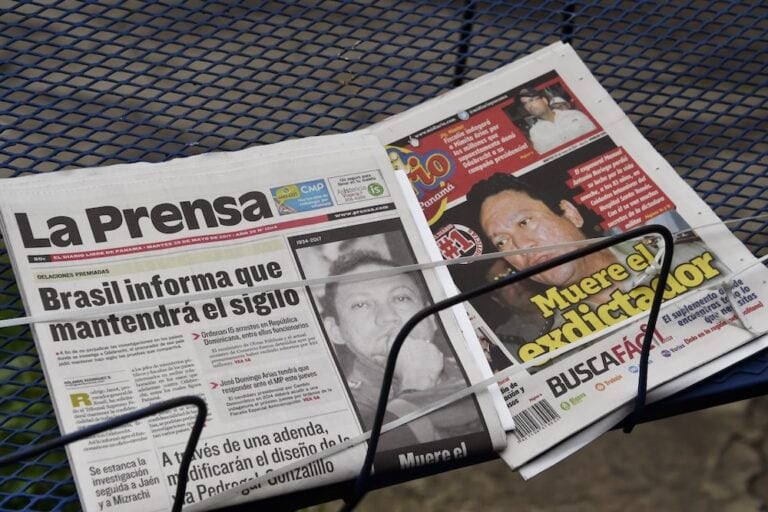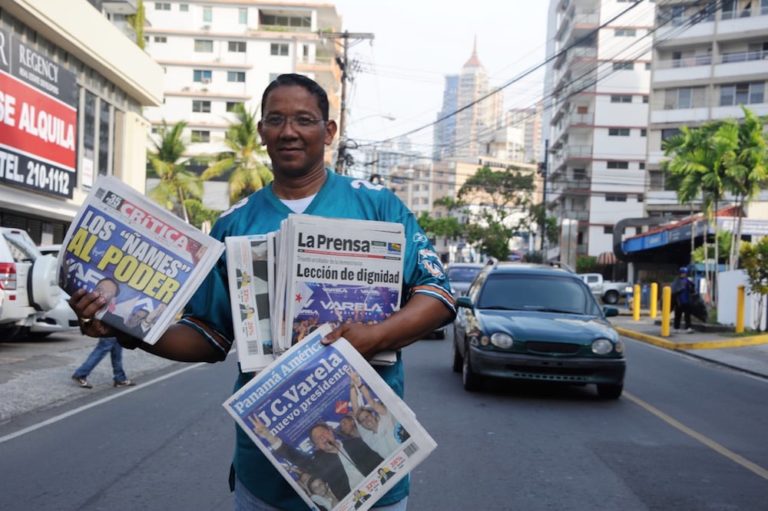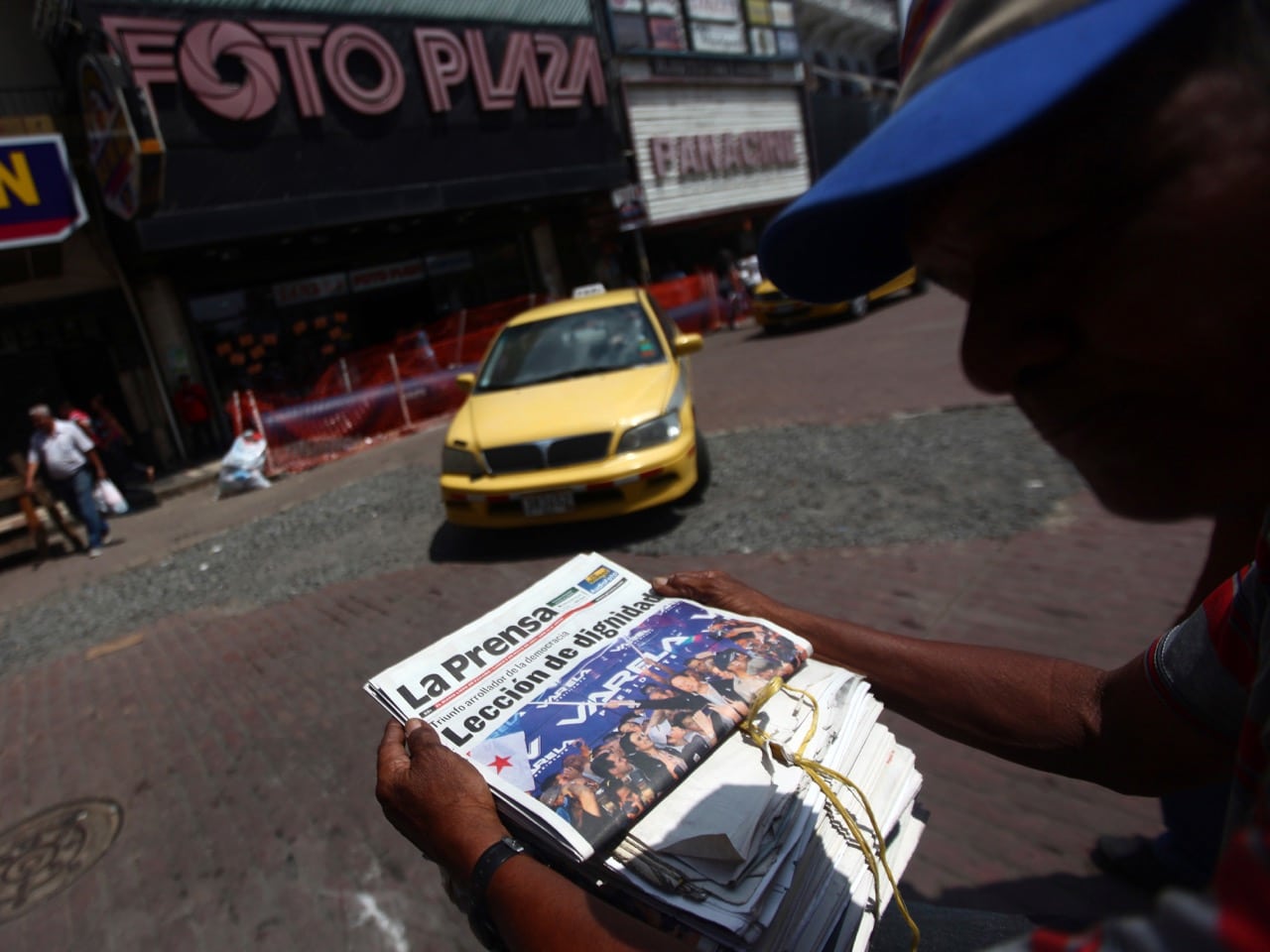(RSF/IFEX) – The following is a 16 March 2001 RSF press release: Two journalists sentenced to eighteen months in prison for “crimes against honour” In a letter to the president of the Second Superior Tribunal, Wilfredo Sáenz, Reporters sans frontières (RSF, www.rsf.fr) protested the sentencing of Rainer Tuñon, formerly a journalist for Crítica Libre, and […]
(RSF/IFEX) – The following is a 16 March 2001 RSF press release:
Two journalists sentenced to eighteen months in prison for “crimes against honour”
In a letter to the president of the Second Superior Tribunal, Wilfredo Sáenz, Reporters sans frontières (RSF, www.rsf.fr) protested the sentencing of Rainer Tuñon, formerly a journalist for Crítica Libre, and Juan Díaz of the daily Panamá América to eighteen months in prison, a sentence exchangeable for a US$400 fine. The two were accused of committing “crimes against honour” after they published information provided by a magistrate. In addition, RSF expressed its concern over the attempt to detain José Otero, of the daily La Prensa, in connection with the same case. RSF asked the president of the Second Superior Tribunal to ensure that Rainer Tuñon and Juan Díaz are acquitted upon appeal and the charges against José Otero are dropped. “The fact that only the journalists are targetted in this case suggests that this is an attack on freedom to circulate information, as guaranteed by Article 19 of the International Covenant on Civil and Political Rights, which has been ratified by Panama,” remarked Robert Ménard, RSF’s secretary-general. Ménard further noted that in a January 2000 document the United Nations special rapporteur for freedom of expression established that “imprisonment as punishment for the peaceful expression of an opinion constitutes a serious violation of human rights.”
According to the information collected by RSF, on 14 March 2001, Juan Díaz, journalist for the daily Panamá América, and Rainer Tuñon, formerly a journalist for Crítica Libre and currently working for the daily El Universal, were sentenced to eighteen months in prison, a sentence exchangeable for a US$400 fine. The two were further prohibited from carrying out any public functions for six months. In their respective dailies, Juan Díaz and Rainer Tuñon published statements made by Judge Manuel Sucari. In June 1997, Sucari announced that he was investigating about a dozen individuals who were suspected of practicing medicine with fake diplomas. Doctor Samuel Osorio Caicedo, who was summoned by the magistrate, and whose diploma was proven to be authentic, filed a complaint against the journalists for “crimes against his honour”. Samuel Osorio Caicedo also initiated legal action against José Otero and there was an attempt to arrest Otero on 15 March.
In a December 2000 press release, RSF asked Panamanian authorities to do everything in their power to have prison sentences for press offences removed from the country’s legislation. The organisation had remarked that the punishment is out of proportion to the offence, has an inhibitory effect on journalists, and is therefore harmful to their right to inform and the right of society as a whole to be informed. Approximately forty journalists are currently facing legal actions for “insult” (“desacato”) or “slander and damages”. A number of the complaints have been filed by Attorney General José Antonio Sossa, who has become the press’ “nightmare”.


